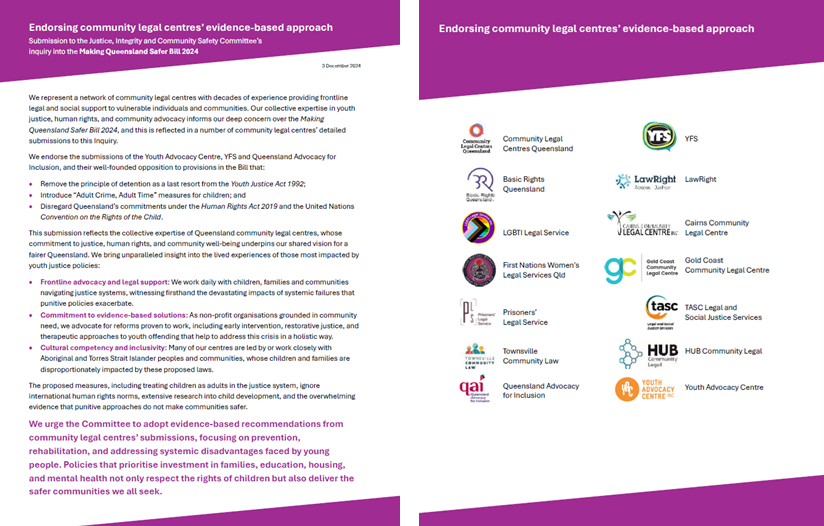Basic Rights Queensland has joined with 13 other community legal centres, to make a submission to the Justice, Integrity and Community Safety Committee’s inquiry into the Making Queensland Safer Bill 2024.
Together, we represent a network of community legal centres with decades of experience providing frontline legal and social support to vulnerable individuals and communities. Our collective expertise in youth justice, human rights, and community advocacy informs our deep concern over the Making Queensland Safer Bill 2024, and this is reflected in a number of community legal centres’ detailed submissions to this Inquiry.
We endorse the submissions of the Youth Advocacy Centre, YFS and Queensland Advocacy for Inclusion, and their well-founded opposition to provisions in the Bill that:
- Remove the principle of detention as a last resort from the Youth Justice Act 1992;
- Introduce “Adult Crime, Adult Time” measures for children; and
- Disregard Queensland’s commitments under the Human Rights Act 2019 and the United Nations Convention on the Rights of the Child.
This submission reflects the collective expertise of Queensland community legal centres, whose commitment to justice, human rights, and community well-being underpins our shared vision for a fairer Queensland. We bring unparalleled insight into the lived experiences of those most impacted by youth justice policies:
- Frontline advocacy and legal support: We work daily with children, families and communities navigating justice systems, witnessing firsthand the devastating impacts of systemic failures that punitive policies exacerbate.
- Commitment to evidence-based solutions: As non-profit organisations grounded in community need, we advocate for reforms proven to work, including early intervention, restorative justice, and therapeutic approaches to youth offending that help to address this crisis in a holistic way.
- Cultural competency and inclusivity: Many of our centres are led by or work closely with Aboriginal and Torres Strait Islander peoples and communities, whose children and families are disproportionately impacted by these proposed laws.
The proposed measures, including treating children as adults in the justice system, ignore international human rights norms, extensive research into child development, and the overwhelming evidence that punitive approaches do not make communities safer.
We urge the Committee to adopt evidence-based recommendations from community legal centres’ submissions, focusing on prevention, rehabilitation, and addressing systemic disadvantages faced by young people. Policies that prioritise investment in families, education, housing, and mental health not only respect the rights of children but also deliver the safer communities we all seek.

